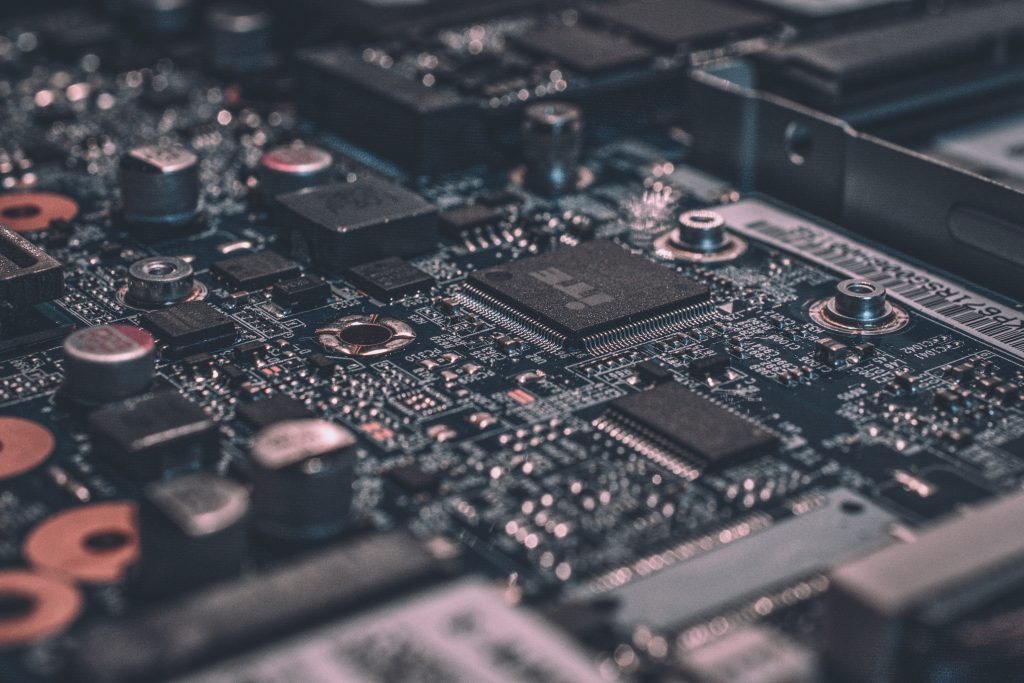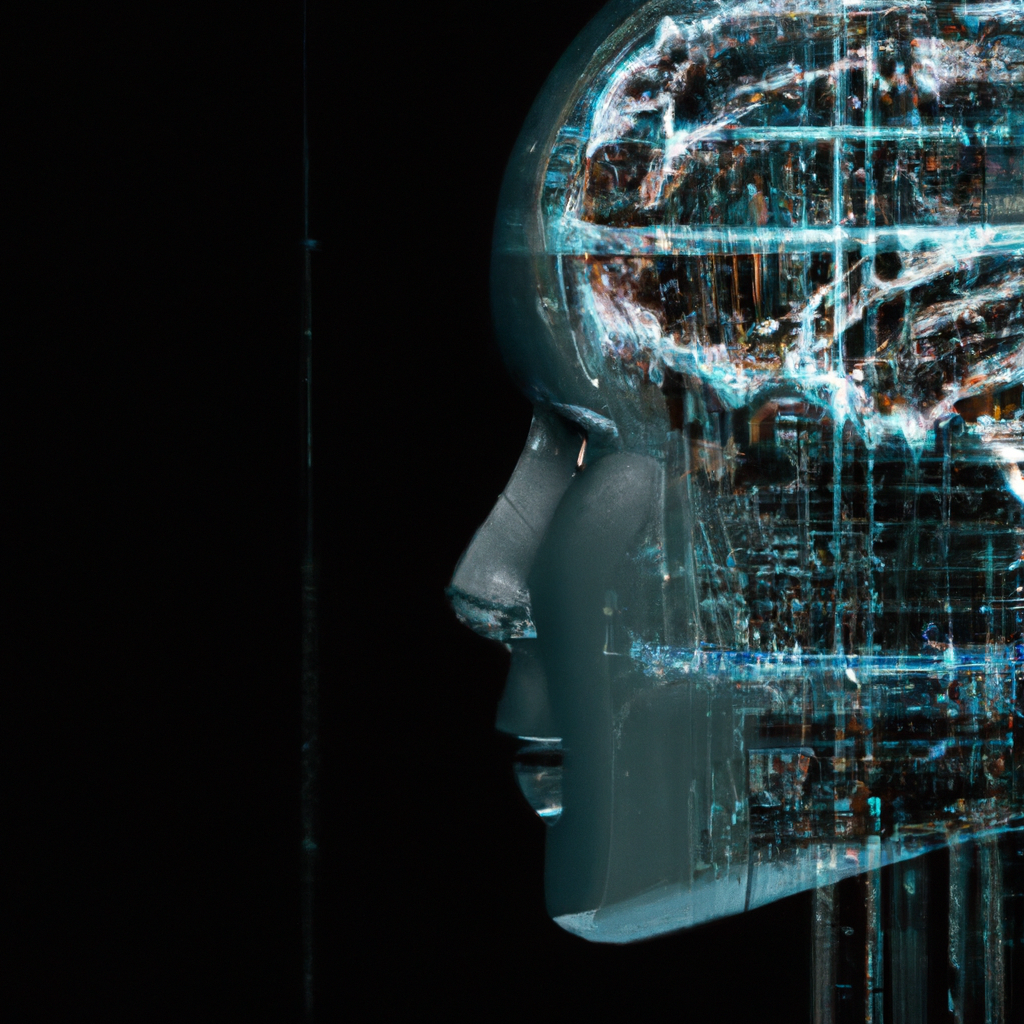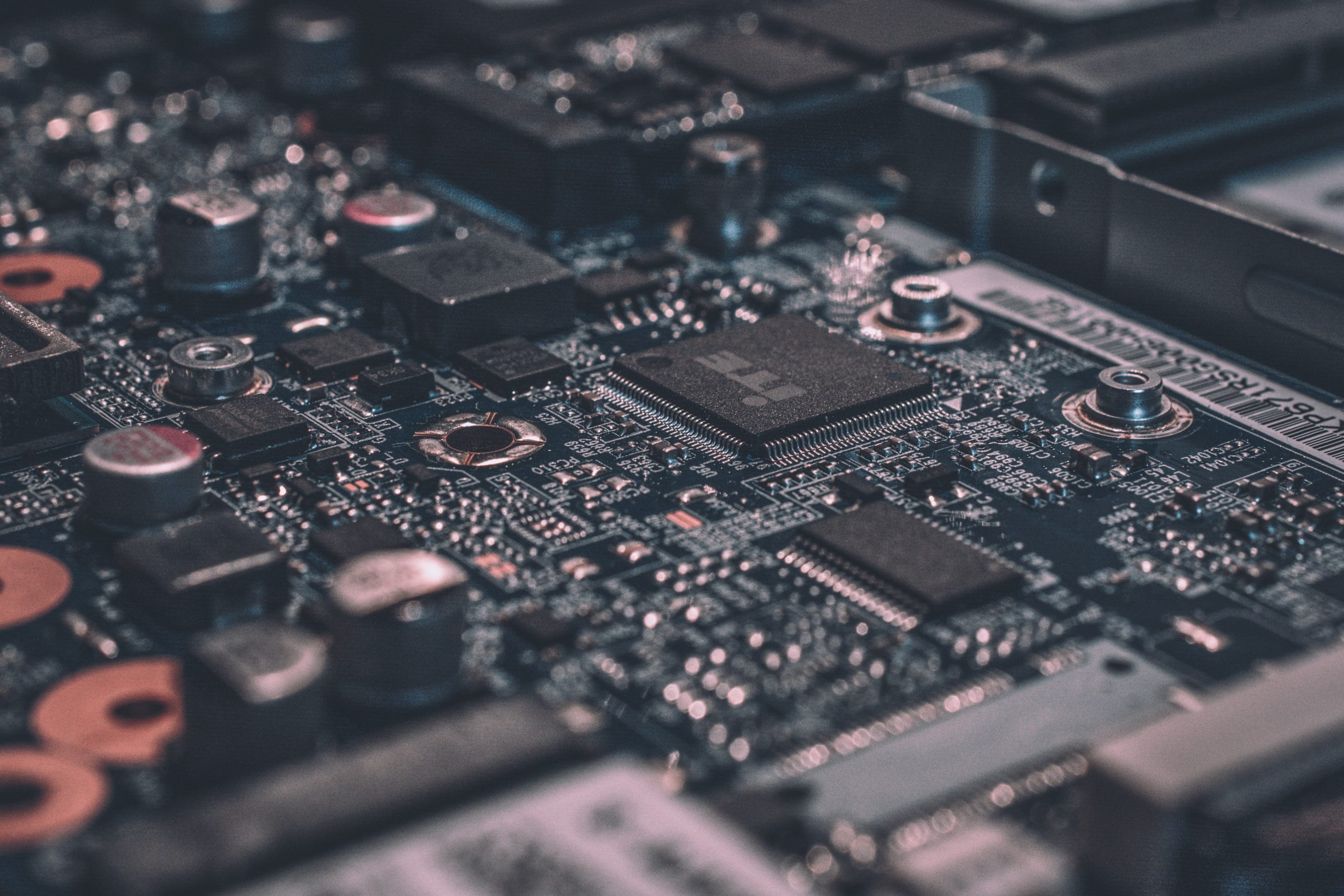Imagine a world where technology becomes a genuine force for good, improving our lives and transforming society as we know it. Artificial Intelligence (AI) holds the key to unlocking this potential, offering a wide range of benefits that have the power to reshape the way we work, live, and interact. From enhancing healthcare and revolutionizing transportation to boosting efficiency in various industries, the possibilities seem endless. This article explores the potential benefits of AI for society, shedding light on the positive impacts it can have on our future. So, fasten your seatbelt and get ready to be inspired by the limitless potential that AI brings to the table.
Improving Healthcare
Faster and more accurate diagnosis
Artificial Intelligence (AI) has the potential to significantly improve the speed and accuracy of medical diagnoses. With the ability to process vast amounts of data and identify patterns, AI algorithms can aid healthcare professionals in diagnosing and treating patients more efficiently. By analyzing symptoms, medical history, and test results, AI algorithms can provide valuable insights and recommendations, saving time and improving patient outcomes.
Tailored treatment plans
AI can play a crucial role in developing personalized and tailored treatment plans for patients. By analyzing patient data, including genetic information, medical history, and treatment outcomes, AI algorithms can identify the most effective treatments for individuals. This not only improves the overall efficacy of treatments but also reduces the risk of adverse reactions and side effects. With AI-enabled treatment plans, patients can receive the care that is specifically suited to their unique needs.
Improved patient monitoring
AI can enhance patient monitoring, particularly for those with chronic conditions or who require constant monitoring. Through wearable devices or IoT-enabled sensors, AI algorithms can continuously collect and analyze data, providing real-time insights into a patient’s health status. This allows healthcare professionals to detect any abnormalities or changes in a patient’s condition promptly, enabling early intervention and prevention of complications. The improvement in patient monitoring provided by AI can help enhance the quality of care and improve patient outcomes.
Advancements in drug discovery
AI holds great promise in revolutionizing the field of drug discovery. The process of developing new drugs is often costly, time-consuming, and complex. AI can expedite the drug discovery process by analyzing vast amounts of data, including genetic information, molecular structures, and clinical trial results. By identifying patterns and relationships, AI algorithms can help researchers identify potential drug candidates more efficiently. This can lead to the development of new and effective treatments for various diseases, ultimately improving the quality of patient care.
Enhancing Education
Personalized learning experiences
With the help of AI, education can be transformed into a more personalized and adaptive experience for students. AI algorithms can analyze each student’s strengths, weaknesses, and learning styles to develop personalized learning plans. By tailoring the curriculum and learning materials to each individual, AI enables students to learn at their own pace, potentially improving their engagement and understanding of the subjects. Furthermore, AI can provide real-time feedback and suggestions, helping students address their learning gaps more effectively.
Efficient administrative tasks
Administrative tasks in educational institutions can be time-consuming and labor-intensive. AI can automate these tasks, freeing up educators’ time to focus on teaching and supporting students. Tasks such as grading assignments, scheduling, and organizing student records can be automated with AI algorithms, reducing the administrative burden on teachers and administrators. This not only increases efficiency but also allows educators to dedicate more time to delivering high-quality education and supporting students.
Accessible education for all
AI has the potential to make education more accessible and inclusive for individuals with disabilities or those in remote areas. Through the use of AI-powered technologies, such as speech recognition and natural language processing, educational materials can be converted into accessible formats, making them easier to comprehend for individuals with visual or hearing impairments. Additionally, AI-enabled virtual learning platforms can provide access to quality education regardless of geographical location, bridging the gap between urban and rural communities.
Enhanced tutoring and support
AI-powered tutoring systems can provide personalized support and guidance to students outside of the classroom. These systems can analyze a student’s performance, identify areas of improvement, and deliver tailored learning resources and exercises. Through adaptive algorithms, AI tutors can monitor the student’s progress, adjust the learning materials accordingly, and provide real-time feedback. This level of personalized tutoring can help students overcome challenges and achieve their academic goals more effectively.

Transforming Transportation
Autonomous vehicles
Artificial intelligence plays a pivotal role in the development of autonomous vehicles. By utilizing sensors, cameras, and AI algorithms, self-driving cars can navigate roads, analyze traffic patterns, and make real-time decisions. The potential benefits of autonomous vehicles include improved road safety, reduced traffic congestion, and increased accessibility for individuals who are unable to drive, such as the elderly or people with disabilities. Additionally, autonomous vehicles can optimize fuel efficiency and reduce carbon emissions, contributing to a more sustainable transportation system.
Traffic optimization
AI can optimize traffic flow by analyzing real-time data from various sources, including traffic cameras, sensors, and GPS systems. By identifying patterns, AI algorithms can dynamically adjust traffic signal timings, reroute vehicles, and optimize the overall traffic flow. This can reduce traffic congestion, improve commuting times, and enhance the efficiency of transportation networks. With AI-enabled traffic optimization, cities can achieve more sustainable and accessible transportation systems.
Reduced accidents and fatalities
One of the most significant potential benefits of AI in transportation is the reduction of accidents and fatalities. AI-powered systems can continuously analyze data and detect potential hazards, such as pedestrians, cyclists, or sudden obstacles. Through advanced object recognition and predictive algorithms, AI can alert drivers or take autonomous actions to prevent accidents. This technology has the potential to save countless lives on the road and improve the overall safety of transportation.
Improved public transportation
AI can enhance the efficiency and reliability of public transportation systems. By analyzing data on passenger demand, traffic patterns, and weather conditions, AI algorithms can optimize routes, schedules, and capacity utilization. This ensures that public transportation services align with the needs of passengers, reducing overcrowding, minimizing wait times, and increasing overall customer satisfaction. With AI-enabled improvements, public transportation can become a more viable and sustainable alternative to private vehicle usage.
Boosting Productivity and Efficiency
Automation of repetitive tasks
Artificial intelligence can automate repetitive and mundane tasks, allowing humans to focus on more complex and creative endeavors. AI-powered software and robots can perform tasks such as data entry, inventory management, customer service, and quality control with high accuracy and efficiency. By automating these tasks, businesses can streamline their operations, reduce errors, and allocate human resources to higher-value activities.
Streamlined processes
AI can streamline business processes by analyzing data and identifying areas for improvement. By studying patterns and trends in data, AI algorithms can optimize workflows, eliminate bottlenecks, and reduce inefficiencies. This can lead to significant time and cost savings for businesses. Additionally, AI can facilitate seamless collaboration and communication among team members, ensuring that projects are completed more efficiently and effectively.
Advanced data analysis
With the ability to process vast amounts of data in real-time, AI algorithms can provide valuable insights and predictions. By analyzing data from various sources, such as customer behavior, market trends, and internal operations, AI can identify patterns and correlations that humans may overlook. These insights can drive data-driven decision-making, enabling businesses to make strategic choices that improve productivity, increase sales, and enhance customer satisfaction.
Optimized decision-making
AI can support decision-making processes by providing accurate and timely information. Through the analysis of data, AI algorithms can identify trends, predict outcomes, and provide recommendations. This can help businesses make more informed and data-driven decisions, reducing the risk of errors and enhancing overall efficiency. With AI-enabled decision-making, businesses can stay competitive in dynamic and fast-paced environments.

Revolutionizing Communication
Natural language processing
Natural language processing (NLP) allows machines to understand and interpret human language. AI-powered NLP technologies enable voice recognition, sentiment analysis, and language translation. With improved NLP capabilities, communication between humans and machines becomes more natural and intuitive, enhancing user experiences and enabling more sophisticated interactions.
Language translation
AI enables real-time language translation, breaking down language barriers and facilitating global communication. With AI-powered translation technologies, communication between individuals who speak different languages becomes more accessible and efficient. Whether it is for business, travel, or personal interactions, AI language translation solutions can enable seamless communication and foster cross-cultural collaborations.
Real-time speech recognition
AI-powered speech recognition technologies can convert spoken language into written text. This technology has numerous applications, from transcription services to voice-controlled assistants. By accurately transcribing conversations and commands in real-time, AI speech recognition systems can improve communication efficiency and enable hands-free interactions.
Enhanced customer support
AI can revolutionize customer support by providing personalized and efficient assistance. AI-powered chatbots and virtual assistants can handle customer inquiries and provide instant responses, 24/7. By analyzing customer data and interactions, AI systems can personalize their responses, understand customer preferences, and offer tailored solutions. This improves customer satisfaction, reduces response times, and frees up human customer service representatives to focus on more complex and specialized tasks.
Improving Cybersecurity
Early threat detection
AI can strengthen cybersecurity by detecting and preventing potential threats at an early stage. AI algorithms can analyze massive amounts of data and identify patterns that indicate malicious activities or vulnerabilities. By continuously monitoring networks, systems, and user behavior, AI systems can detect anomalies, notify security teams, and take proactive actions to prevent cyberattacks.
Behavioral biometrics
AI can enhance cybersecurity through behavioral biometrics. AI algorithms can analyze patterns of behavior, such as typing speed, mouse movements, and voice characteristics, to authenticate users and detect suspicious activities. Behavioral biometrics can provide an additional layer of security, as an individual’s behavioral patterns are difficult to replicate or imitate.
Secure transactions
AI technologies can improve the security of financial transactions by detecting and preventing fraud. By analyzing transaction history, user behavior, and real-time data, AI algorithms can identify fraudulent patterns and anomalies. This enables financial institutions to take immediate action to protect their customers and mitigate financial losses.
Protection against cyber attacks
AI can assist in protecting systems and networks from cyber attacks. By continuously monitoring for vulnerabilities, analyzing network traffic, and identifying potential weaknesses, AI systems can help organizations patch vulnerabilities and strengthen their cybersecurity defenses. Additionally, AI can assist in predicting and modeling potential cyber attacks, allowing organizations to proactively prepare and defend against emerging threats.

Creating Personalized and Customized Experiences
Tailored recommendations
AI algorithms can provide personalized recommendations based on individual preferences and behaviors. By analyzing large amounts of data, including browsing history, purchase patterns, and user feedback, AI systems can suggest products, services, and content that align with a user’s interests. This personalization enhances user experiences, increases engagement, and improves customer satisfaction.
Personalized marketing
AI can transform marketing strategies by enabling personalized and targeted campaigns. By analyzing customer data and behavior, AI algorithms can deliver relevant and timely marketing messages to specific customer segments. This allows businesses to tailor their marketing efforts, increase the effectiveness of their campaigns, and build stronger customer relationships.
Customized user interfaces
AI can adapt user interfaces to individual preferences, creating a more personalized and intuitive experience. Through user data analysis and machine learning, AI can customize interface elements such as layout, color schemes, and functionality. This enhances usability, increases user engagement, and reduces the learning curve for new users.
Individualized virtual assistants
AI-powered virtual assistants, such as Siri, Alexa, or Google Assistant, provide individualized support and assistance. These assistants utilize AI algorithms to understand user preferences, learn from interactions, and adapt to individual needs. By tailoring responses and services to each user, AI virtual assistants can provide a unique and personalized experience, enhancing productivity and simplifying daily tasks.
Preserving the Environment
Efficient energy use
AI can optimize energy consumption by analyzing data on power usage, weather conditions, and user behavior. AI algorithms can make intelligent decisions, such as adjusting temperature settings or optimizing energy distribution, to minimize waste and improve energy efficiency. This can lead to significant energy savings and contribute to a more sustainable environment.
Optimized resource management
AI can help optimize the management of natural resources, such as water, forests, and agriculture. By analyzing data from remote sensors, satellite imagery, and historical data, AI algorithms can predict resource availability, identify areas at risk, and optimize resource allocation. This allows for more efficient and sustainable resource management, reducing waste and minimizing the impact on the environment.
Environmental monitoring and conservation
AI-powered environmental monitoring systems can collect and analyze data to assess the health of ecosystems, track changes in biodiversity, and identify threats to the environment. By continuously monitoring air quality, water pollution, and habitat conditions, AI algorithms can provide valuable insights for conservation efforts. This enables proactive conservation measures, mitigating the impact of human activities on the environment and promoting sustainable development.
Predictive analytics for climate change
AI can aid in predicting and modeling the impact of climate change. By analyzing historical climate data, scientific research, and socio-economic factors, AI algorithms can simulate various scenarios and forecast future climate conditions. This information is crucial for policymakers, allowing them to develop effective mitigation strategies and adaptation plans to alleviate the effects of climate change.

Assisting in Disaster Management
Early warning systems
AI can significantly improve early warning systems for natural disasters, such as earthquakes, hurricanes, or wildfires. By analyzing real-time data from various sources, including satellite imagery, weather patterns, and seismic activity, AI algorithms can detect potential disasters and issue timely alerts. This enables communities to take proactive measures to protect lives and property, improving emergency preparedness and response.
Improved emergency response
AI can enhance emergency response efforts by analyzing data, coordinating resources, and providing real-time situational awareness. By integrating data from emergency services, social media, and sensor networks, AI algorithms can identify patterns and trends during a crisis, enabling authorities to allocate resources effectively and respond quickly to changing conditions. This improves the efficiency and effectiveness of emergency response, potentially saving lives and reducing the impact of disasters.
Search and rescue operations
AI can assist in search and rescue operations during disasters. By analyzing data from unmanned aerial vehicles (UAVs), satellites, and ground sensors, AI algorithms can identify areas of high risk or locate missing persons. This technology enables first responders to prioritize their efforts, streamline search operations, and increase the chances of successfully rescuing individuals in distress.
Post-disaster recovery planning
AI can aid in post-disaster recovery planning by analyzing data and simulating various recovery scenarios. By considering factors such as infrastructure damage, population displacement, and resource availability, AI algorithms can assist in developing recovery plans that are efficient, sustainable, and tailored to the specific needs of affected communities. This supports the long-term recovery and resilience of communities impacted by disasters.
Promoting Social Equality and Accessibility
Equal opportunities for all
AI can contribute to promoting equal opportunities by reducing bias and discrimination. By analyzing large datasets and identifying patterns, AI algorithms can help eliminate biases in areas such as recruiting, lending, and access to resources. When applied ethically and responsibly, AI has the potential to level the playing field and ensure that everyone has equal opportunities to succeed.
Improved accessibility for people with disabilities
AI can enhance accessibility for individuals with disabilities by providing assistive technologies and adaptive solutions. By leveraging AI-powered speech recognition, natural language processing, and computer vision, individuals with visual or hearing impairments can interact with technology more effectively. Additionally, AI can enable accessibility features such as closed captioning, screen readers, and voice commands, ensuring that digital content and services are accessible to all.
Assistance to the elderly and vulnerable
AI can assist the elderly and vulnerable populations by providing companionship, monitoring their health, and ensuring their safety. AI-powered virtual assistants and robots can provide social interaction, reminders for medication or appointments, and even emergency assistance. Additionally, AI-enabled systems can monitor the health status of individuals and notify caregivers or medical professionals in case of emergencies or anomalies, providing peace of mind for both the individuals and their families.
Language translation for inclusivity
AI language translation technologies can bridge language barriers, making information and communication more accessible to individuals who speak different languages. By providing real-time translation services, AI can facilitate cross-cultural communication and inclusivity. This is particularly important in diverse and multicultural societies, where language barriers can hinder equal access to education, employment, and essential services.
In conclusion, artificial intelligence has the potential to bring about significant benefits to society across various domains. From improving healthcare and education to transforming transportation and boosting productivity, AI can revolutionize numerous aspects of our lives. The potential benefits include faster and more accurate diagnoses, personalized learning experiences, safer transportation, enhanced productivity and efficiency, revolutionized communication, improved cybersecurity, personalized and customized experiences, environmental preservation, disaster management assistance, and promotion of social equality and accessibility. However, it is crucial to ensure the responsible and ethical development and deployment of AI to maximize these benefits while addressing any potential risks and challenges.










